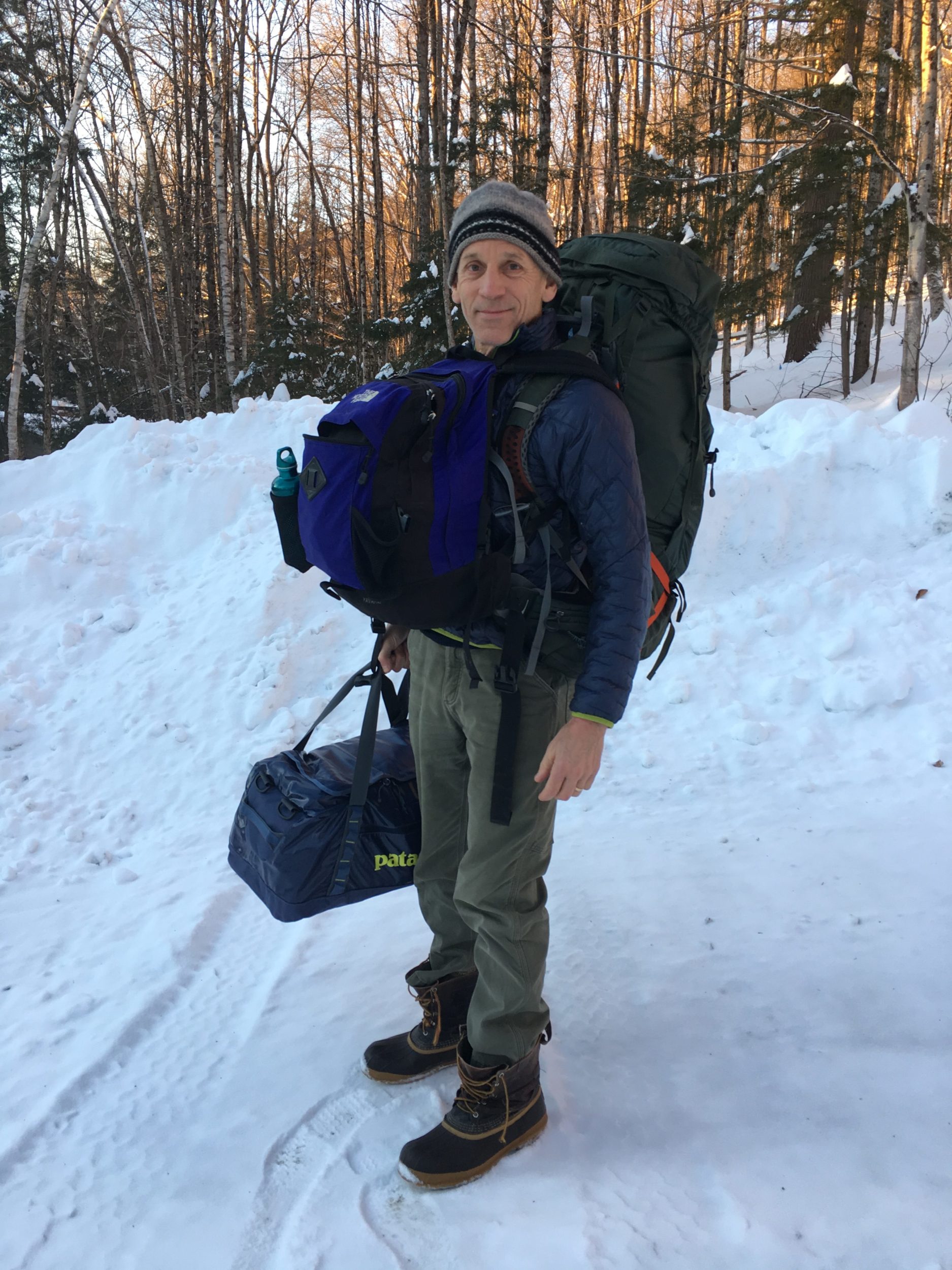
“Which way to Cuba?” VCE’s Chris Rimmer has everything he needs (we hope) for his field trip to the mountains of eastern Cuba, where he will be conducting surveys for Bicknell’s Thrush. / © Leslie Rimmer
After icy runways in the wake of Winter Storm Harper forced a 24-hour cancellation of his Monday flight from Logan Airport in Boston, Chris Rimmer is finally bound for eastern Cuba. He’ll trade a foot-plus of new snow and subzero temperatures for cloud forests and Cuban Trogons.
Chris and a team of four colleagues from VCE’s partner organization El Centro Oriental de Ecosistemas y Biodiversidad (BIOECO) will backpack deep into remote Bayamesa National Park, where they’ll navigate the trailless and little-explored landscape in search of Bicknell’s Thrush.
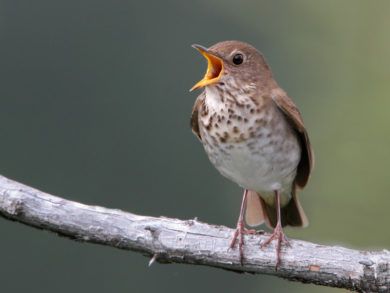
Bicknell’s Thrush. Chris follows this species from the mountains of the Northeast to the mountains of eastern Cuba. / © Jeff Nadler
Chris’s upcoming trip will wrap up three winters of intensive field surveys for Bicknell’s Thrush in southeastern Cuba. (You can read about the 2018 and 2017 expeditions on our blog.) So far, VCE’s results suggest that the island may trail only Hispaniola in supporting a substantial overwintering population of this rare, globally vulnerable songbird.
Following the VCE-BIOECO team’s trek into Bayamesa, they will spend a few days in Humboldt National Park to the east. This region features a massif of rugged but lower-elevation mountains that are covered in wet serpentine broadleaf forest. Bicknell’s Thrush has never been found there, but very few surveys have ever been conducted.
This will be an adventure in the truest sense, as none of the team has familiarity with the region, such that no one is quite sure what to expect! Chris is told that he may be the first “gringo” to ever penetrate this wilderness in the heart of Cuba’s largest mountain range.
We hope and expect to hear positive news (and tall tales) from both Bayamesa and Humboldt national parks upon Chris’s return in mid-February. Until then, you can get a sense of what Chris will be up to by watching this short video from last year’s trip in search of “the Enigmatic Bicknell’s Thrush in Cuba.”
Field Update, February 1, 2019
Chris recently emerged from the trailless wilderness of the Sierra Maestra mountains in Cuba’s Bayamesa National Park to check in and share a brief update from the field. All of us here at VCE were relieved to see that he made it back from the first leg of his trip in one piece!
Chris remarked, “We were almost definitely the first humans to ever reach the area that we did, a remarkable and humbling feeling. Weather was tough with a lot of rain, and we were thoroughly soaked and filthy from many muddy falls on steep slopes. We couldn’t make anywhere near the progress we’d hoped, as cutting new trails through the dense cloud forest terrain was slow and difficult, plus weather slowed us down. Using machetes in soaking wet, slippery conditions is not highly recommended, not to mention that we had to hike each morning from our base camp at 1500 m to the summit of Pico Bayemesa (1752 m), where the existing trail ended, and steeply down from there to our new trailblazing route.”
Despite the challenging (to say the least) conditions on the ground, the team managed to find seven Bicknell’s Thrush and band three, considerably fewer than they hoped for or expected, yet their efforts provided informative results. They also ran mist nets in between rain events (banding about 30 birds, including a surprising three Swainson’s Warblers), and did point counts as new sections of trail opened up.
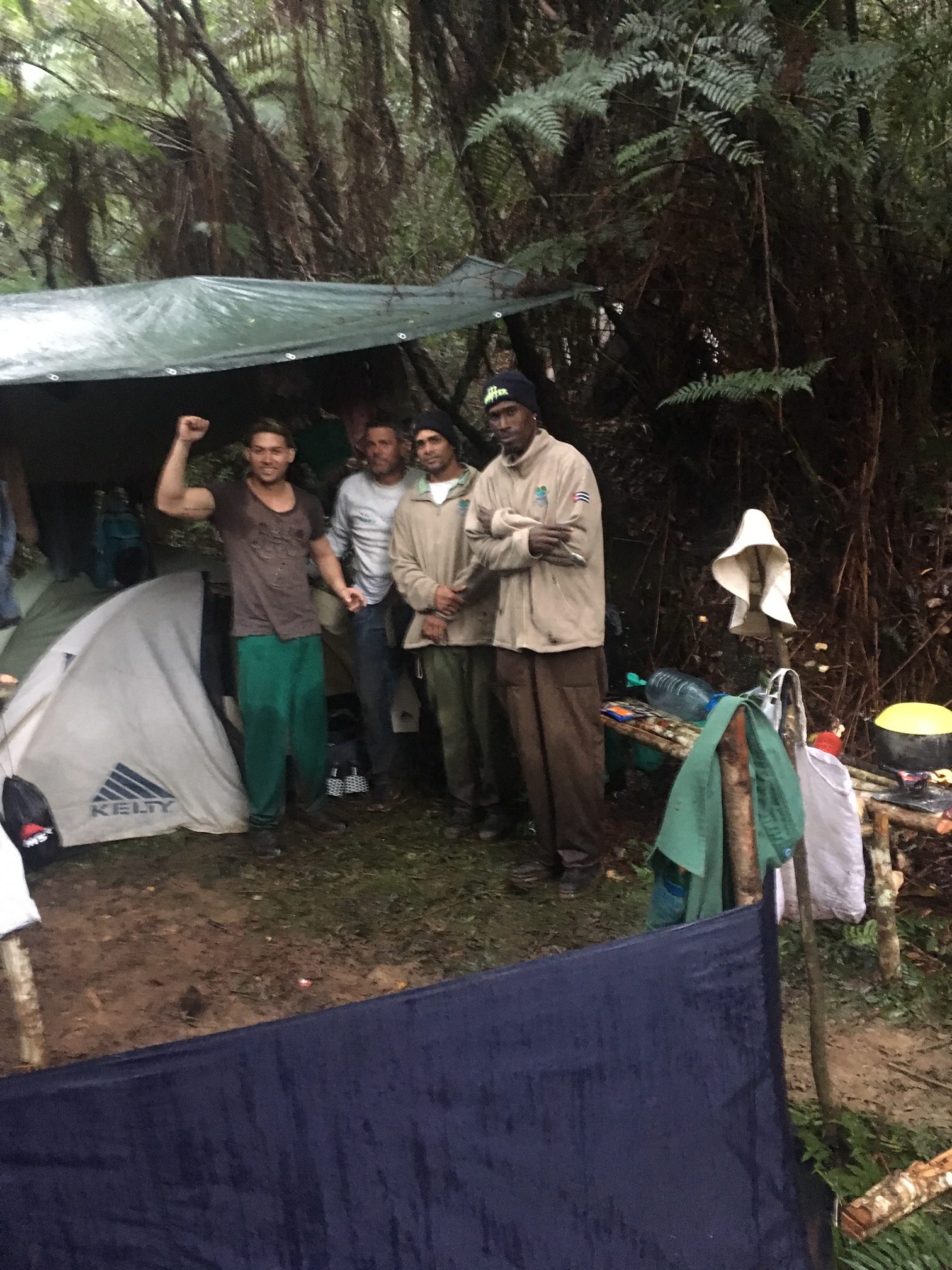
Team BIOECO enjoys a break from muddy trail blazing in search of Bicknell’s Thrush in Cuba’s Bayamesa National Park.
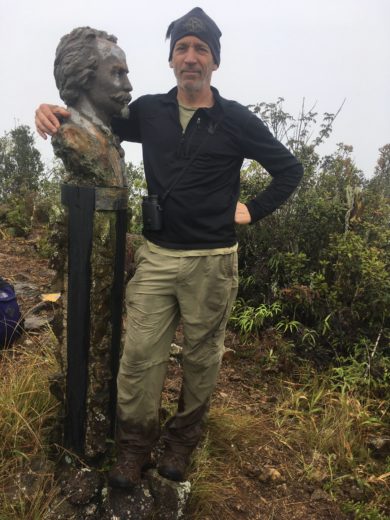 Team VCE/Bioeco heads back into the field at dawn’s first light for Alejandro de Humboldt National Park, a region featuring rugged but lower-elevation mountains covered in wet serpentine broadleaf forest. Bicknell’s Thrush has never been found there, but very few surveys have ever been conducted.
Team VCE/Bioeco heads back into the field at dawn’s first light for Alejandro de Humboldt National Park, a region featuring rugged but lower-elevation mountains covered in wet serpentine broadleaf forest. Bicknell’s Thrush has never been found there, but very few surveys have ever been conducted.
Keep an eye out for a full trip report after Chris returns to the office in mid-February. We can’t wait to hear about his adventures (and misadventures) in the field!

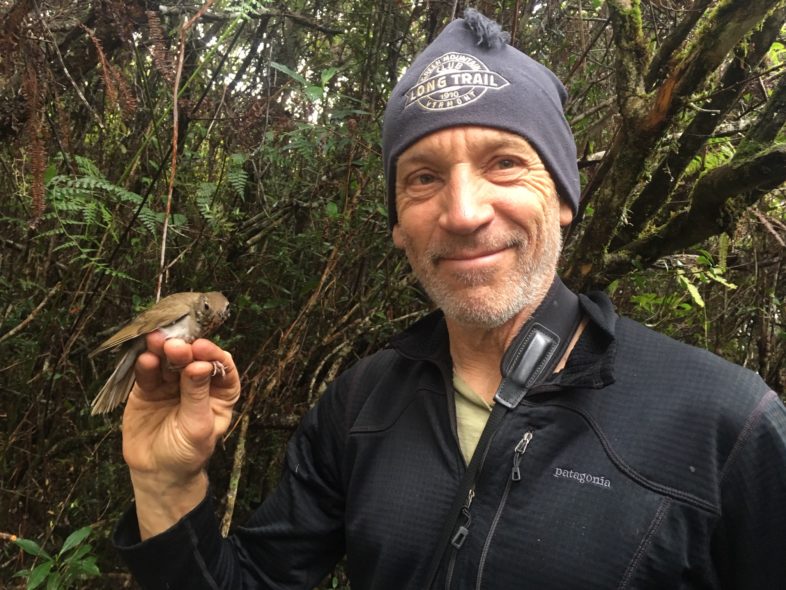

Chris: you look like a pregnant monkey; have a safe trip.
pete
O.K., you look like you’re all packed and ready to go, Chris…
But, “Geez!,” you had better tie those boots, buddy! 😉
Chris, that looks like a great adventure!